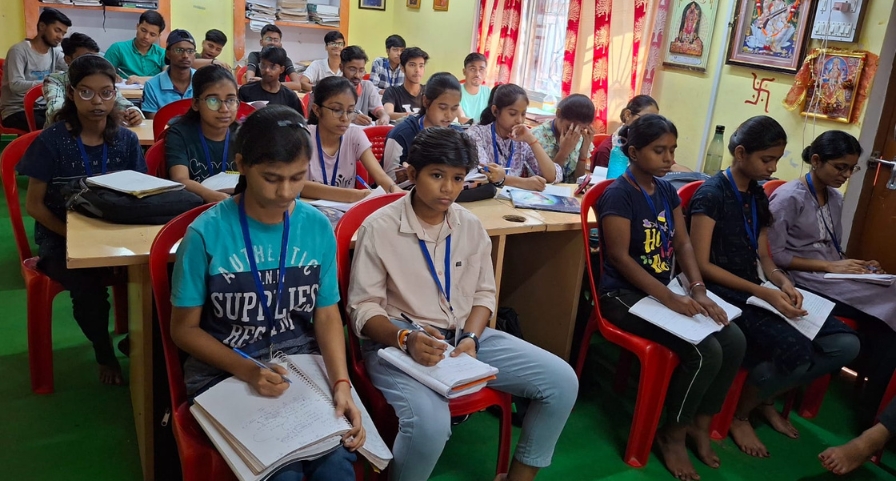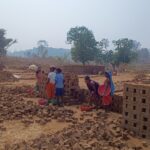In the sacred land of salvation and spirituality, where Gautama Buddha attained enlightenment, lies a modest yet remarkable village called Patwa Toli, situated in the Manpur block of Gaya district, Bihar.
Once known primarily for its thriving handloom industry and often referred to as the “Manchester of Bihar,” the village has earned a different identity. Now it is known as the “village of engineers,” or more specifically, the “village of IITians.”
Every year around 15–20 children clear the IIT exam. Even though literacy levels are low in Bihar, due to the efforts of Vriksh, the literacy rate of Patwa Toli is about 98 percent.

A place where the hum of weaving machines has gradually been replaced by the buzz of academic discussions, disciplined routines, and dreams larger than the village’s narrow lanes.
Also read: Bihar’s STEM girls embrace coding to land lucrative jobs
A legacy of weaving and aspirations
For generations, the weavers community in Patwa Toli relied on cloth weaving as its main source of livelihood. In fact, the Toli derives its name from ‘patwa’ which means weavers. Handlooms, and later power looms, shaped both the village’s identity and its economy. But with modernisation, traditional weaving began to decline, leading to financial challenges for many families.
In response, the community gradually turned towards education. As the sounds of looms faded, classrooms and study spaces became more common. With a strong desire to improve their future, the people of Patwa Toli began to focus on academics. They aspired to build a new path forward through learning and determination.
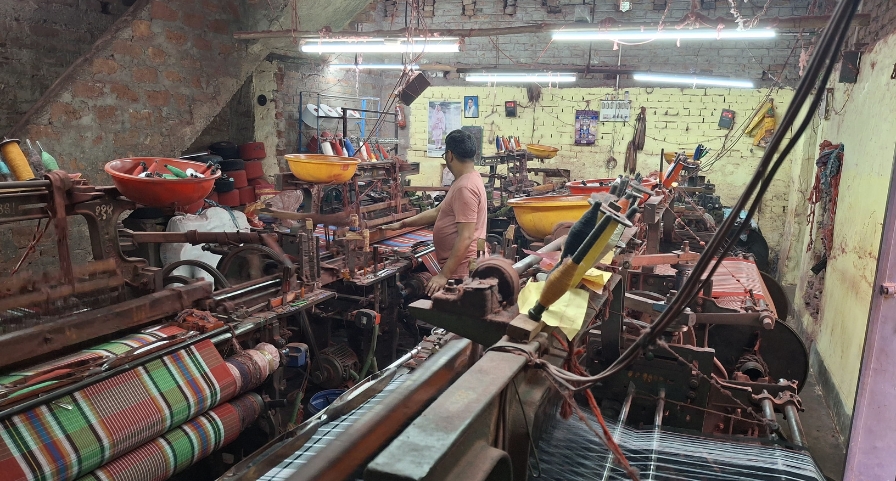
“Here in Patwa Toli, young students see their seniors cracking the JEE, one of the toughest competitive exams in India, and getting jobs directly after completing BTech. That motivates them to emulate their success,” remarked Sujal Kumar, 19, a resident of Pehani, Manpur in Gaya, who is currently pursuing his BTech from NIT Durgapur.
Genesis of an educational revolution
The turning point came in 1991 when Jitendra Kumar, a weaver’s son, became the first one from Patwa Toli to secure admission in the prestigious IIT-BHU.
His success was not just a personal triumph but a communal awakening. Inspired by his journey, the village began to reimagine its destiny through the lens of education, laying the foundation of a movement that soon gathered unstoppable momentum.
An inspiring community-driven model
At the heart of this transformation is Vriksh – Be the Change, an initiative launched by Chandrakant Pateshwari in 2013. It began as a shared study space at his home in 1998 and eventually grew into a movement dedicated to attaining educational equity.
When I was in grade seven, two of my friends had to quit studies due to financial constraints. That drove me to believe that money shouldn’t be a hindrance in receiving education.
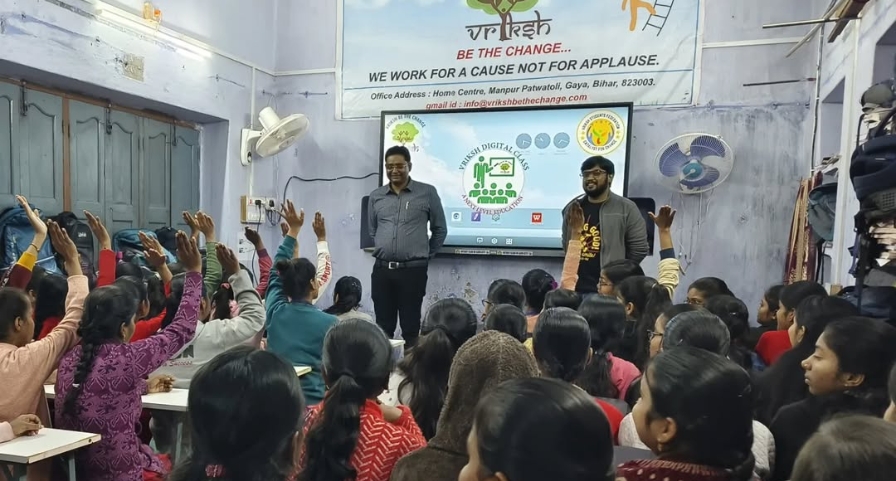
“When I was in grade seven, two of my friends had to quit studies due to financial constraints. That drove me to believe that money shouldn’t be a hindrance in receiving education. So, when I became capable enough, I, along with a few friends, started Vriksh with the vision to provide free education, especially to those who couldn’t afford it,” says Chandrakant Pateshwari, who founded Vriksh in 2013.
Vriksh addresses barriers to education by providing free coaching, mentorship, study materials, residential support, and access to a 24×7 library. Children who once had limited opportunities now receive quality guidance regardless of their financial background.
Also read: Education comes to a community ridiculed as rat-eaters
Nurturing young minds
Vriksh is more than an educational platform—it is a model of community-driven transformation. Designed to support socially or economically deprived students, it promotes holistic learning, blending academic excellence with value-based learning.
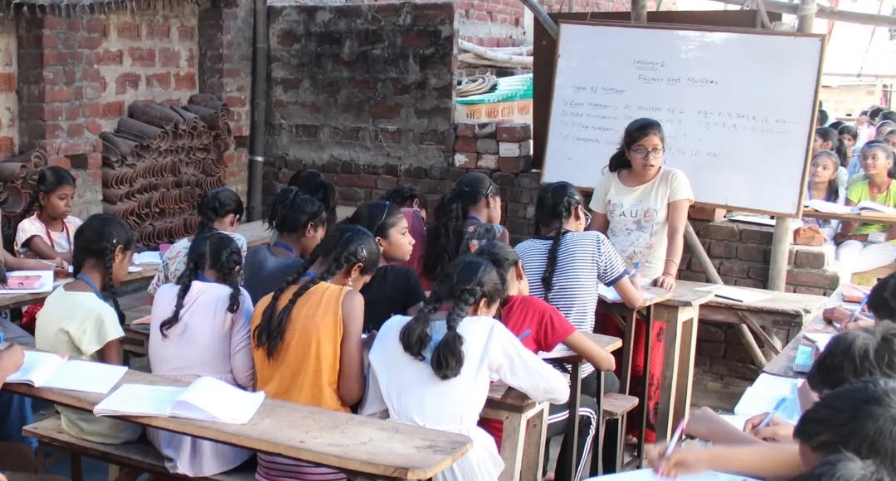
The initiative also prioritises gender inclusion, offering separate living and study arrangements for girls, thereby encouraging more young women to pursue higher education. Many girls from Patwa Toli, once limited by traditional expectations, are now preparing for careers in engineering, medicine, and civil services.
“I come from a financially weak background. My parents work as labourers at a powerloom cottage. From grade six to getting admission in NIT, Vriksh has helped me receive quality education free of cost. I have also gained valuable life lessons from our beloved Chandrakant bhaiya (brother),” explained Suraj Kumar, 20, a resident of Suryapokhara, Manpur and a former student of Vriksh.
“The teaching method at VRIKSH is unique—emphasising polyvision learning, online classes, peer collaboration, and self-study, all supported by dedicated teachers who volunteer their time and knowledge free of cost,” added Suraj, a first-year student at NIT Shibpur.
Remarkable achievements
Since 1998, Patwa Toli has produced thousands of engineering graduates. More than 300 students bagged admissions in IITs alone and the rest in other esteemed institutions like the National Institutes of Technology (NITs) and other government and private colleges. As a result, today in Patwa Toli, there is at least one engineer in every household.
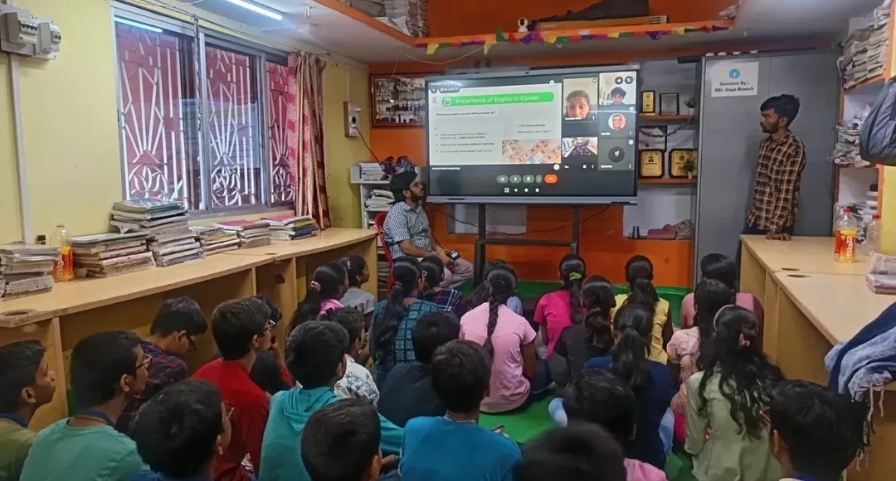
“With the help of Vriksh, every year around 15–20 children clear the IIT exam. Even though literacy levels are low in Bihar, due to the efforts of Vriksh, the literacy rate of Patwa Toli is about 98 percent,” remarked Chandrakant.
Patwa Toli’s evolution from a weaving-centric village to a cradle of engineers exemplifies the transformative power of education and community collaboration. Through collective effort, unwavering determination, and innovative grassroots initiatives like Vriksh, the village has not only redefined its identity but also set a benchmark for rural India.
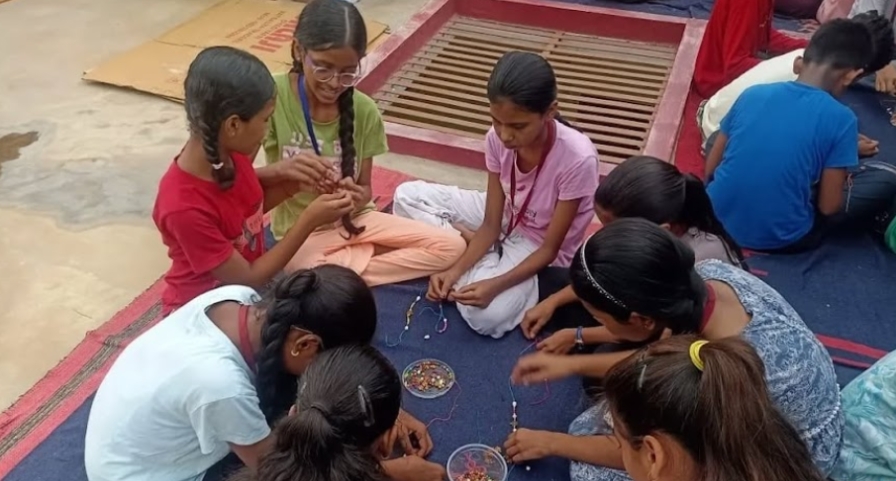
The success of Patwa Toli is not just about academic excellence—it is a story of how a community, united by a shared dream, can overcome adversity and script its own destiny.
Also read: A Bal Gram Sabha for kids
The lead image on top captures dedicated IIT aspirants from Patwa Toli attending an online class at Vriksh. (Photo courtesy: Vriksh–Be the Change)
Vishal Kumar is an Administrative Officer at Village Square. He is passionate about sharing stories from Bihar.

